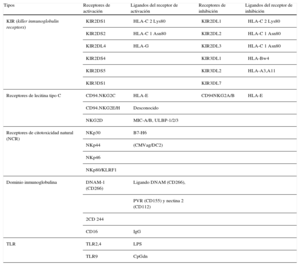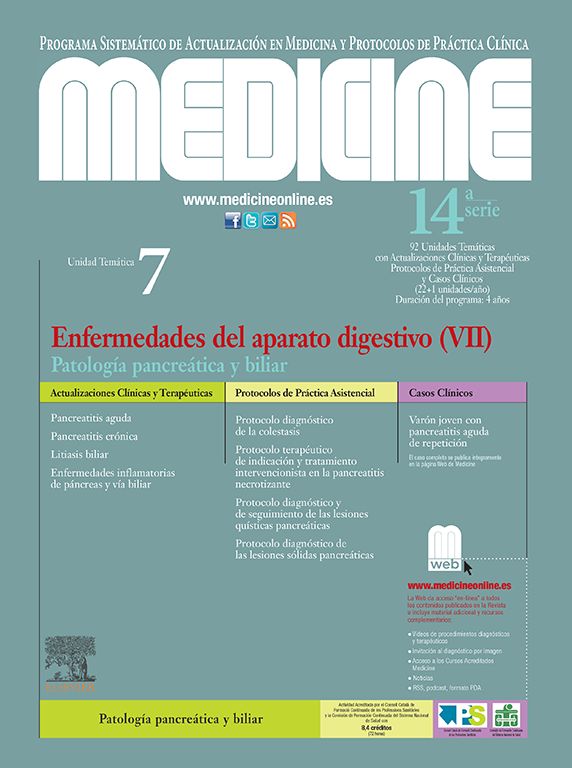Las células natural killer (NK) son las células encargadas de la defensa frente a infecciones víricas y la eliminación de células tumorales. Se caracterizan por una potente capacidad citolítica y un sistema extremadamente eficiente para inducir apoptosis en las células diana. Además, están encargadas de diferenciar entre células autólogas y heterólogas o xenogénicas, siendo en parte las principales responsables del rechazo en los trasplantes. Este proceso lo realizan eficientemente gracias a un conjunto de receptores que se han clasificado en dos grandes grupos, los receptores activadores y los receptores inhibidores. Los receptores inhibidores se conocen desde hace tiempo, siendo responsables del reconocimiento de lo “propio” examinando las moléculas de histocompatibilidad de clase I. De los receptores activadores conocemos cada vez más y, sin embargo, poco sabemos de sus ligandos, foco actual de interés para los científicos. Alteraciones en el número o función de las células NK son responsables de numerosas patologías en los ámbitos de las infecciones, los tumores, la autoinmunidad y las inmunodeficiencias. También es muy relevante la cooperación que existe entre las células NK y las otras células del sistema inmune innato como las células dendríticas o del sistema inmune adaptativo como los linfocitos T. En esta actualización se repasan los últimos conocimientos en la biología de las células NK, subtipos, receptores que expresan, mecanismos citotóxicos y su papel en la defensa antivírica y antitumoral.
Palabras Clave
Natural killer (NK) cells are responsible for the defence against viral infections and the elimination of tumour cells. They are characterised by their potent cytolytic ability and their highly efficient system for inducing apoptosis in target cells. In addition, they are responsible for differentiating between autologous and heterologous or xenogeneic cells, the latter of which are partly responsible for transplant rejection. NK cells perform this process efficiently thanks to a collection of receptors which receptors have been classified into two major groups: activating receptors and inhibitory receptors. Inhibitory receptors have been identified for some time and are responsible for recognising that which belongs to the body by examining class I histocompatibility molecules. We are steadily learning more about the activating receptors; however, we still know little about their ligands, which are the current focus of interest to scientists. Changes in the number or function of NK cells are responsible for numerous diseases in the context of infections, tumours, autoimmunities and immunodeficiencies. Of significant importance is the cooperation between NK cells and other innate immune system cells, such as dendritic cells, or adaptive immune system cells, such as T lymphocytes. In this monograph, we review the latest discoveries in the biology of NK cells, subtypes, the receptors they express, the cytotoxic mechanisms and their role in antiviral and antitumour defence.
Keywords
Identifíquese
¿Aún no es suscriptor de la revista?
Comprar el acceso al artículo
Comprando el artículo el pdf del mismo podrá ser descargado
Precio: 19,34 €
Teléfono para incidencias
De lunes a viernes de 9h a 18h (GMT+1) excepto los meses de julio y agosto que será de 9 a 15h





